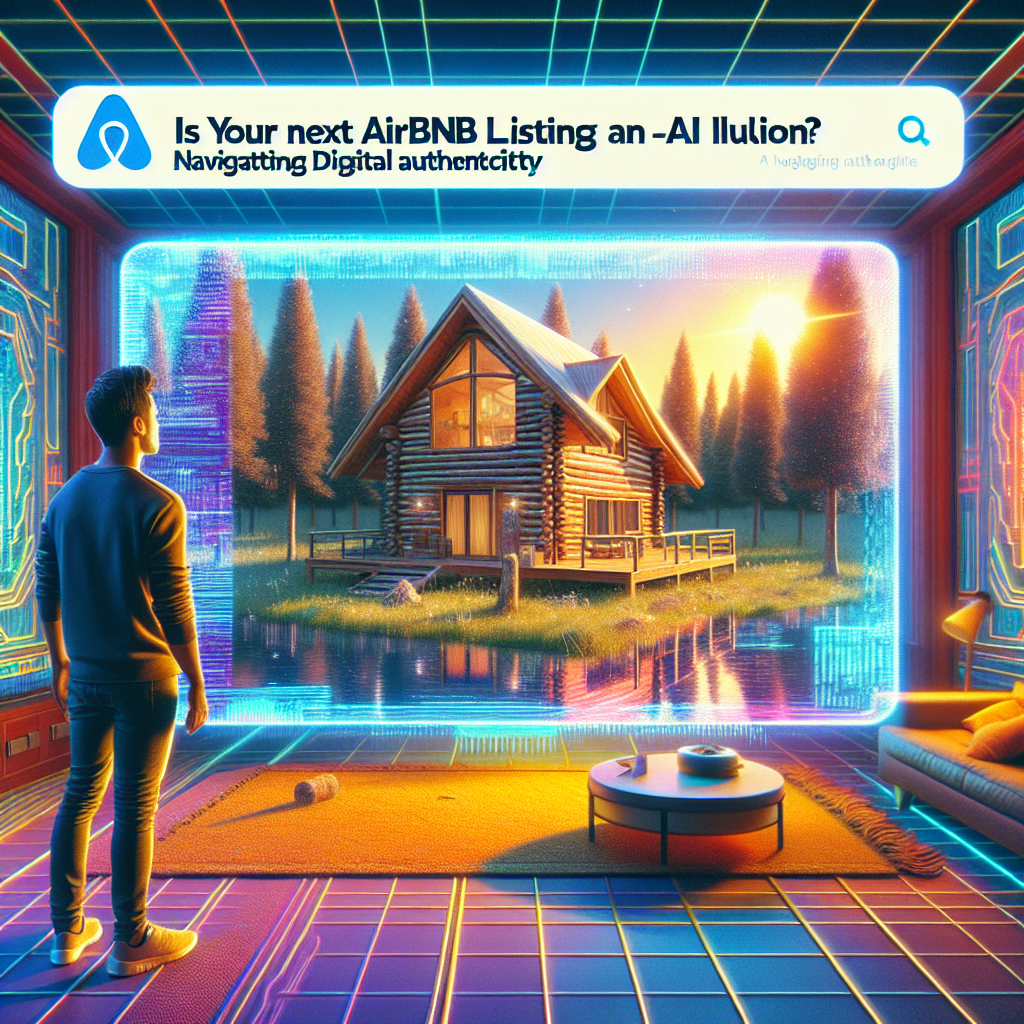Imagine scrolling through stunning photos of a potential vacation rental. Every detail seems perfect: the lighting, the decor, the inviting atmosphere. It paints a picture of your dream getaway. But what if those flawless images were never truly real? What if they were crafted not by a camera, but by artificial intelligence?
This intriguing question recently sparked a lively online discussion, highlighting a new frontier in the world of digital authenticity. A traveler recounted an experience that left them wondering if their host had used AI-generated images to showcase their property. The revelation, if true, raises significant concerns about trust, transparency, and the evolving landscape of online listings.
The Unsettling Discovery
The story began with a guest’s arrival at a rental property. Upon stepping inside, a sense of unease settled in. The place, while adequate, didn’t quite match the pristine, almost too-perfect visuals from the listing. Small discrepancies, an odd angle, or an unnatural glow began to raise suspicion.
This wasn’t a case of subtle photo editing or clever staging. The guest suspected something far more advanced: AI. The feeling of being subtly misled was palpable. It prompted a deeper look into the subtle tells that distinguish a photograph from an artificial creation.
Spotting the Signs
How can one discern if an image has been conjured by AI rather than captured by a lens? While AI generation is becoming incredibly sophisticated, there are often subtle clues:
- Uncanny Valley Effect: Sometimes, things just look “off” – too smooth, too perfect, or subtly distorted in a way that feels unnatural.
- Inconsistent Details: Look for details that don’t quite add up. Are light sources illogical? Do patterns repeat oddly? Are reflections distorted?
- Strange Text or Backgrounds: AI struggles with coherent text in images. Backgrounds might have blurred or oddly rendered elements.
- Lack of Real-World Imperfections: Real spaces have character, wear, and unique flaws. AI images often lack these natural imperfections.
- Repetitive Elements: Sometimes AI might repeat objects or textures in an unconvincing way.
These indicators, when combined, can paint a clearer picture of an image’s true origin. The issue, however, goes beyond just spotting AI.
The Broader Implications of AI in Marketing
This incident, whether an isolated case or a sign of things to come, highlights a broader challenge. Artificial intelligence offers incredible tools for creation, but with great power comes great responsibility. The ability to generate hyper-realistic images opens doors for both innovation and potential deception.
Businesses across various sectors use visuals to attract customers. From product advertisements to real estate listings, imagery forms the first impression. If these images are not authentic representations, the foundation of trust between seller and consumer begins to crumble.
Erosion of Trust
Trust is the bedrock of any transaction, especially in the digital realm where physical inspection is often impossible before purchase. When consumers discover that the visuals they relied upon were fabricated, it leads to a profound sense of betrayal.
This erosion of trust has ripple effects. It makes consumers wary, leading to more skepticism and potentially fewer online purchases. For platforms like Airbnb, whose success hinges on community trust and accurate listings, such practices could be detrimental. It forces consumers to question everything they see, leading to a less transparent and more complicated online experience.
Navigating the New Digital Landscape
As AI continues to advance, both consumers and businesses must adapt. The digital landscape is shifting, and new strategies are needed to ensure authenticity and maintain trust.
For Consumers: Vigilance is Key
How can you protect yourself from potential AI-generated illusions?
- Scrutinize Images Closely: Don’t just glance. Zoom in, look for inconsistencies, and trust your instincts if something feels off.
- Read Reviews Diligently: Past guest reviews often provide a more accurate picture of a property’s true state. Look for reviews that mention discrepancies or misrepresentations.
- Seek Multiple Perspectives: If available, check for video tours or look for the property on other platforms to see different angles or types of media.
- Ask Questions: Don’t hesitate to message the host with specific questions about the property or its features. Clarification can be key.
For Businesses: Authenticity Builds Loyalty
For hosts and businesses, the message is clear: authenticity is your greatest asset. While AI can assist with marketing, transparency must remain paramount. Using AI to create misleading images is a short-term gain that leads to long-term damage.
- Be Transparent About AI Use: If you use AI for staging or enhancement, disclose it. Honesty builds credibility.
- Prioritize Real Photography: Invest in high-quality, authentic photographs that accurately represent your offering.
- Show Imperfections (Within Reason): A truly authentic listing doesn’t hide every small flaw. It presents a realistic view.
- Focus on Value, Not Illusion: Deliver on what you promise. Customer satisfaction from genuine representation leads to repeat business and positive word-of-mouth.
Conclusion
The discussion sparked by a curious Airbnb guest highlights a critical challenge of our digital age: distinguishing between reality and AI-generated illusion. As artificial intelligence becomes more sophisticated, the onus is on both creators and consumers to foster an environment of honesty and informed decision-making.
Maintaining trust in online interactions is paramount. For businesses, this means embracing ethical AI practices and prioritizing genuine representation. For consumers, it means developing a sharper eye and advocating for transparency. The future of online commerce depends on our collective commitment to authenticity.
What are your thoughts on AI-generated images in online listings? Have you ever suspected an image wasn’t real? Share your experiences and insights in the comments below – your perspective helps us all navigate this evolving digital landscape!



